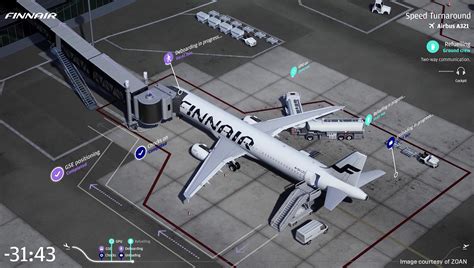In today's fast-paced world, air travel has become an integral part of our lives. With millions of passengers taking to the skies every day, the demand for seamless and efficient flight experiences has never been more pressing. One of the key drivers of this transformation is mobile airline technology, which is revolutionizing the way we travel by air.
The Importance of Mobile Airline Technology
Mobile airline technology is no longer a luxury, but a necessity in today's digital age. With the majority of air travelers using their mobile devices to plan, book, and manage their flights, airlines are under pressure to deliver personalized, user-friendly, and efficient mobile experiences. By leveraging mobile technology, airlines can streamline flight experiences, reduce costs, and increase customer satisfaction.
The Benefits of Mobile Airline Technology
Mobile airline technology offers a wide range of benefits for both airlines and passengers. Some of the key advantages include:
- Personalization: Mobile airline technology enables airlines to offer personalized experiences to their passengers, from tailored flight recommendations to customized in-flight entertainment.
- Convenience: With mobile airline technology, passengers can access a wide range of services, including flight booking, check-in, and baggage drop-off, all from the comfort of their own devices.
- Efficiency: Mobile airline technology helps airlines to streamline their operations, reducing wait times and increasing the speed of check-in and boarding.
- Cost Savings: By reducing the need for physical infrastructure and minimizing the number of staff required, mobile airline technology can help airlines to save costs and increase revenue.

Key Features of Mobile Airline Technology
Mobile airline technology encompasses a wide range of features and functionalities, including:
- Mobile Check-in: Passengers can check-in for their flights using their mobile devices, reducing wait times and increasing efficiency.
- Mobile Boarding Passes: Passengers can access their boarding passes on their mobile devices, eliminating the need for paper passes.
- Flight Status Updates: Passengers can receive real-time updates on flight status, including delays, cancellations, and gate changes.
- In-Flight Entertainment: Passengers can access a wide range of in-flight entertainment options, including movies, TV shows, and music.

Best Practices for Implementing Mobile Airline Technology
Implementing mobile airline technology requires careful planning and execution. Some best practices to keep in mind include:
- User-Centered Design: Airlines should prioritize user-centered design when developing their mobile apps, ensuring that the user experience is intuitive and seamless.
- Integration with Existing Systems: Airlines should ensure that their mobile apps are integrated with existing systems, including reservation and customer relationship management systems.
- Security and Data Protection: Airlines should prioritize security and data protection when developing their mobile apps, ensuring that passenger data is safe and secure.
- Testing and Feedback: Airlines should conduct thorough testing and gather feedback from passengers to ensure that their mobile apps meet their needs and expectations.

Overcoming Challenges and Limitations
While mobile airline technology offers a wide range of benefits, there are also challenges and limitations to consider. Some of the key challenges include:
- Infrastructure and Connectivity: Airlines require robust infrastructure and connectivity to support mobile airline technology, which can be a challenge in areas with limited connectivity.
- Security and Data Protection: Airlines must prioritize security and data protection when developing their mobile apps, which can be a challenge in the face of increasingly sophisticated cyber threats.
- User Adoption: Airlines must encourage user adoption of their mobile apps, which can be a challenge in the face of passenger resistance to new technology.

The Future of Mobile Airline Technology
The future of mobile airline technology is exciting and rapidly evolving. Some trends to watch include:
- Artificial Intelligence and Machine Learning: Airlines are increasingly leveraging artificial intelligence and machine learning to personalize the passenger experience and improve operational efficiency.
- Internet of Things (IoT): Airlines are exploring the use of IoT technology to improve passenger experiences and increase operational efficiency.
- Augmented Reality and Virtual Reality: Airlines are exploring the use of augmented reality and virtual reality to enhance the passenger experience and provide immersive entertainment options.

Conclusion
Mobile airline technology is revolutionizing the way we travel by air, offering a wide range of benefits for both airlines and passengers. From personalized experiences to increased efficiency, mobile airline technology is streamlining flight experiences and reducing costs. As the technology continues to evolve, we can expect to see even more exciting innovations in the future.
Gallery of Mobile Airline Technology






What is mobile airline technology?
+Mobile airline technology refers to the use of mobile devices and applications to enhance the air travel experience.
What are the benefits of mobile airline technology?
+The benefits of mobile airline technology include personalized experiences, increased efficiency, and cost savings.
How can airlines implement mobile airline technology?
+Airlines can implement mobile airline technology by developing user-centered mobile apps, integrating with existing systems, and prioritizing security and data protection.
